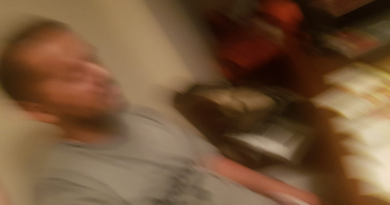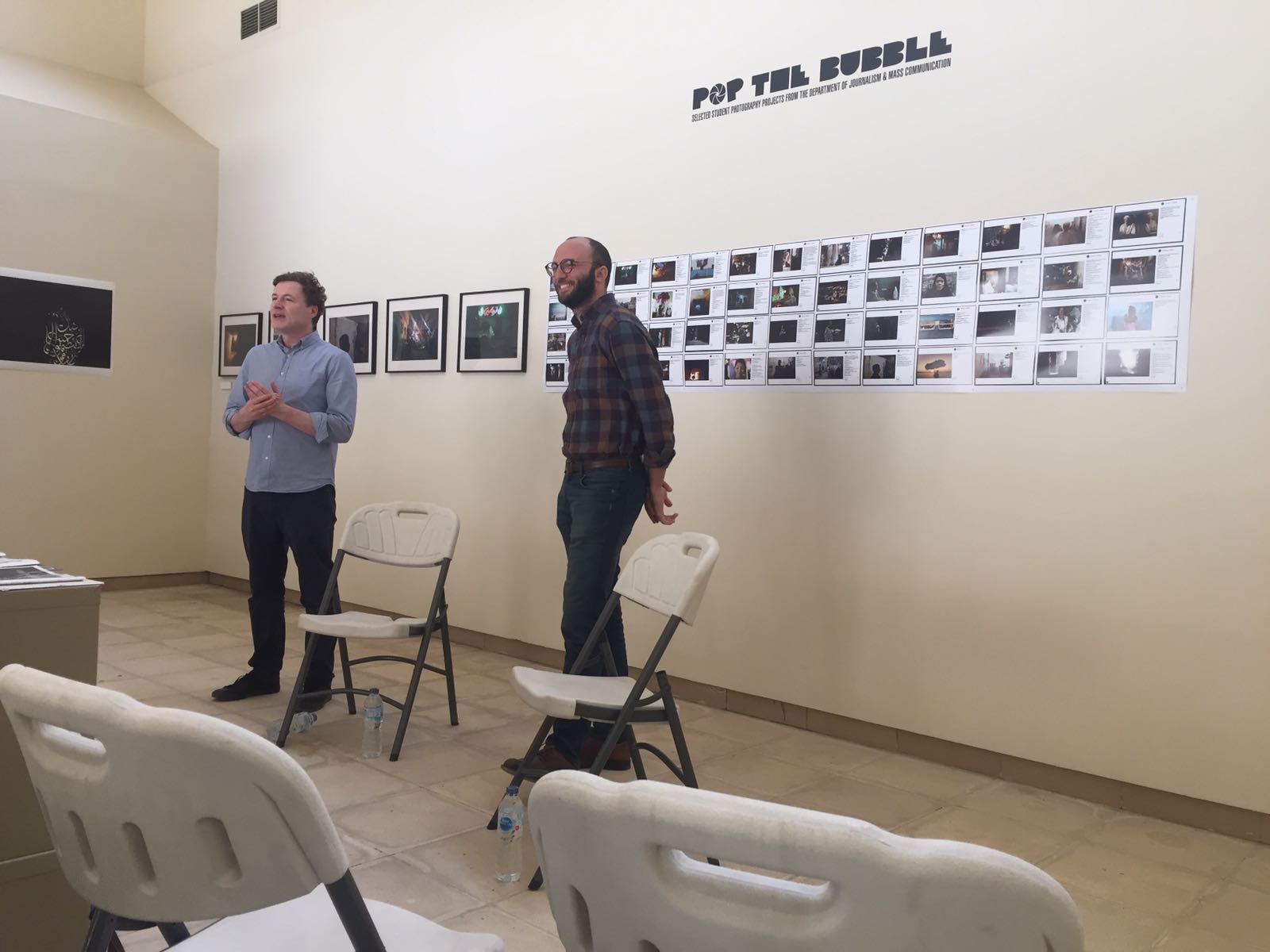HUSS Bids Giulio Regeni Emotional Farewell Amid Simmering Anger
![Giulio Regeni's research supervisor, Rabab El Mahdi, at the memorial held in his memory. [Suhayla Al Sheikh]](http://www.auccaravan.com/wp-content/uploads/2016/02/IMG_0922-copy-e1456681424683.jpg)
@ENGYALY7 & @FARAHKHALEDAK
The School of Humanities and Social Sciences held a memorial service Wednesday to “commemorate the tragic loss” of Italian student Giulio Regeni.
Faculty members and students filled the P071 hall, and listened to poetry, music, and eulogies honoring the memory of the graduate student who disappeared on January 25 and was later found murdered.
“We are here today to uphold Giulio’s right to be remembered, not just as a promising scholar or an excellent student, rather I believe that he was much more,” Rabab El Mahdi, a political science professor and Giulio’s academic supervisor, said at the service.
“His horrific murder is a price he paid for being a citizen of humanity who believed in equality, dignity, and justice,” she added.
Regeni’s body was found on a road in Cairo’s western outskirts on February 4, covered in welts and signs of torture.
He disappeared on the evening of January 25, after leaving his home to meet a friend.
El Mahdi also said that Regeni was studying the challenges facing independent unions in Egypt and not just driven by intellectual curiosity, but more so by a belief in the “right of ordinary Egyptians to organize”.
El Mahdi, however, declined to speak to The Caravan directly about the issue.
AUC President Thomas E. Thomason said he was horrified by Regeni’s ordeal.
“It makes me sick to my stomach to think of what’s happened to that poor young man,” he told The Caravan.
“But, we as an institution can express our concern and do what we can to follow this but we’re not in a position to do much more than that,” he added.
Debate has for weeks raged over the circumstances surrounding Regeni’s murder and the university’s reaction, which some say was slow in coming .
In early February, a number of AUC students and faculty members organized a “silent stand in solidarity” with Regeni.
They protested their contempt for the university’s reaction to Regeni’s murder.
The demonstrators held up posters that read “Giulio did not pass away” and “Giulio’s murder is not an isolated incident, the AUC bubble will not protect you.”
This came as a reaction to a tweet sent on the official AUC Twitter account on February 4, which stated “AUC extends its condolences and sympathies to the family and friends of Giulio Regeni, a visiting scholar at AUC, who passed away recently.”
The university later sent out an email with different wording, saying they will be following investigations closely.
Professor of anthropology Ramy Aly, who is one of the stand’s organizers, told The Caravan that the university reacted slowly and in an “inaccurate fashion”.
“I think that the university has to jealously defend its faculty and students and to allow them to work without fear,” Aly said.
“So what I would like the university to do is to have conversations with us and acknowledge that there is a problem and dangers in doing what they’re asking us to do, which is to do research, think critically, and engage with the community. ”
Aly added that even though students and faculty are happy to do all these things, the university should cooperate with them and tell them how to go about doing their work in “this dangerous environment.”
Anthropology major Omar ElKafrawy believes that the AUC community should raise awareness of the bigger issue of academic freedom in Egypt.
Sociology professor Amy Holmes believes the university should be honest with students, faculty, and visiting scholars about the risks of doing research now in Egypt.
“We would like there to be more transparency of what this means and also academic freedom in Egypt and AUC,” she said.
“The university must act responsibly and take steps to defend its community or risk losing its position in international academia,” said Pascale Ghazaleh, associate professor in the history department.
Ghazaleh also said that there is a petition circulating for members of the community to call on the university to take measures to defend its students and faculty members who are conducting research.
Thomason believes that for conduct outside the university, the administration is not in a position to provide security and accompany people.
“In fact that’s not what the faculty or the students would like to have happened,” he said.


